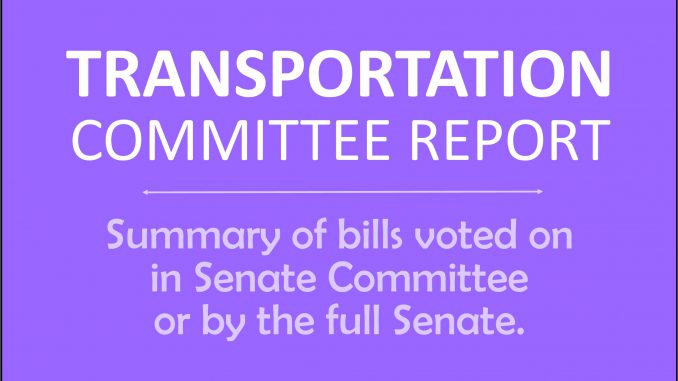
HF 499 – School bus exemptions
HF 769 – Gross weight of special trucks
FLOOR ACTION:
HF 499 – School bus exemptions
HF 499 allows new or used vehicles designed to carry 10 passengers, including the driver, and used passenger vans designed to carry 12 passengers, including the driver, to be used as school buses. In addition, pick-up trucks designed to carry nine or fewer passengers, including the driver, may be used as school buses.
[4/25: 50-0]
HF 767 – Electric vehicles
HF 767 creates new registration fees for Electric and Hybrid Vehicles and a new excise tax on hydrogen and electric fuel. In light of the increasing use of these vehicles, the Legislature directed the Iowa Department of Transportation (DOT) to estimate the impact of increased usage of electric, hybrid and other high-efficiency motor vehicles on future revenues to the Road Use Tax Fund. It also required the DOT to evaluate and recommend alternative funding mechanisms or the alteration of existing funding mechanisms to offset decreases in future revenues due to the increased use of electric, hybrid and other high-efficiency motor vehicles. DOT produced recommendations with the goal of no net change in revenue, equity and administrative costs. HF 767 is based on recommendations from the DOT report.
Registration Fees – Battery electric vehicles have no internal combustion engine and are propelled exclusively by electricity. Under the bill, battery electric motors will pay an additional registration fee of $65 in 2020, increasing to $130 after January 1, 2022. Plug-in hybrid vehicles will pay a $32 fee beginning in 2020, increasing to a fee of $65 after January 1, 2022. Motorcycles that have a battery electric or hybrid motor will pay an additional $4.50 fee beginning in 2020, with the fee increasing to $9 by January 1, 2022.
Excise Tax – A gallon of hydrogen is 249 pounds and will pay an excise tax of 65 cents per gallon. Vehicles using hydrogen fuel will have a special fuel sticker from the County Treasurer designating that the vehicle takes special fuel. Electric fuel means electrical energy delivered or placed into a battery or other energy source outside the motor vehicle to propel it. An excise tax of two and six-tenths cents per kilowatt hour of electric fuel delivered into the battery will attach at the time of delivery. A person cannot sell or dispense electric fuel unless they hold an electric fuel license.
[4/27: 34-14 (Yes: Republicans, Kinney, Quirmbach; Excused: Lykam, T. Taylor)]
HF 769 – Gross weight of special trucks
HF 769 allows a special truck used for certain farming purposes to increase to a gross maximum weight of 39 tons from the current maximum of 32 tons. The registration fee is an additional $25 per ton between 32 and 38 tons, and an additional $10 per ton between 38 and 39 tons.
[4/26: 49-0 (Excused: Feenstra)]
